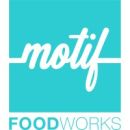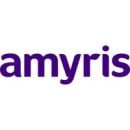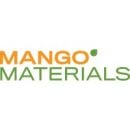Imagine a world in which all the planes in the sky are fueled by algae and the very breath you exhale can be turned into food. Everything, from plastic bags to clothing, is completely biodegradable. This may sound like science fiction right now, but it’s a future synthetic biology companies across the country are working to bring to fruition — and it’s not as distant as you might think.
What Is Synthetic Biology?
Synthetic biology is the practice of genetically modifying organisms by adding chunks of DNA into an organism’s genome. Organisms then gain new abilities that make them useful for various purposes, like microbes that enhance food products or enzymes that detect diseases.
Just like rearranging ones and zeros on a screen can alter a digital product, changing the chemical code contained in DNA can alter a biological system. And these newly formed microorganisms can, in theory, make many of the same things that industrial processes handle now. With synthetic biology, companies can make an infinite amount of raw materials from scratch, cell by cell, allowing us to manufacture the things we depend on in a much more sustainable way. Indeed, just as data and cloud computing companies brought us into the digital era, synthetic biology is forging an entirely new production and sustainability frontier.
With a reported market value of more than $17 billion, the industry seems to have hit its stride. While there is still a long way to go to make many of these products and processes commercially available, the progress synthetic biology has made so far is spawning an entire ecosystem of companies that are working to revolutionize the material world as we know it. And these companies are doing it in ways that are more environmentally friendly because they use fewer resources and fossil fuels.
Top Synthetic Biology Companies to Keep an Eye On
- Ginkgo Bioworks
- Bolt Threads
- Mammoth Biosciences
- LanzaTech
- Motif FoodWorks
- Joyn Bio
- Kiverdi
- Perfect Day
- Viridos
- Upside Foods
Think tank BCG Henderson Institute projects the meat, beauty and pharmaceuticals industries are on the brink of being taken over by synthetic biology; and the agriculture, automobile and fashion industries will follow soon after. The momentum gained in this space stands to transform more than just a handful of industries, though, essentially impacting the entire economy. Another analysis published by BCG Henderson Institute found that synthetic biology could disrupt sectors that account for as much as 30 percent of the global GDP — $28 trillion — by 2030.
To get an idea of what this industry has up its sleeve and where we are seeing the most innovation, check out these synthetic biology companies.
Synthetic Biology Companies to Know
Location: Boston, Massachusetts
What it does: Asimov specializes in technology for genetic engineering that serves organizations in the biotechnology space. Its genetic design platform features an expansive library of experimentally validated genetic parts and analytics capabilities to support development of biologics and gene therapies.
Location: Berkeley, California
What it does: Perfect Day has figured out a way to make milk protein that is identical to cow’s milk, using fermentation to turn sugar into whey and casein. Back in 2019 the company made headlines for the limited run of its animal-free ice cream. Now, it sells its protein to other food and dairy companies like Nestlé and popular low-calorie ice cream maker Nick’s.
Location: Goleta, California
What it does: With a stable of prominent investors including Andreessen Horowitz and musician Katy Perry, Apeel Sciences makes plant-based coatings that are designed to extend the shelf life of produce. The tasteless and odorless layer is wrapped around fruits and vegetables as a way to keep moisture in while letting oxygen out, which reportedly helps them stay fresh twice as long. The company works with a global network of fresh food growers, suppliers and retailers.
Location: San Francisco, California
What it does: Twist Bioscience is able to manufacture synthetic DNA by “writing” DNA on a silicon chip. This custom DNA can be applied to a variety of industries, including healthcare, industrial chemicals and agriculture. Every day, Twist turns millions of oligonucleotides into high-grade genes that can then be used by researchers to produce everything from next-generation sequencing preparation to antibody libraries. It also proved essential in the fight against Covid-19, since antibody treatments require custom DNA.
Location: Boston, Massachusetts
What it does: Through biological engineering, Ginkgo Bioworks alters the genetic composition of cells to change how they behave, designing custom organisms that have the potential to transform a variety of industries, from food to industrial products. It even applied its technology to help with Covid-19 testing and vaccine manufacturing. Boasting a constellation of spin-offs, partnerships and joint ventures, Ginkgo has been likened to Warren Buffet’s Berkshire Hathaway.
Location: Redwood City, California
What it does: Perhaps one of the most recognizable players in the synthetic biology space, Impossible Foods sits at the center of the alternative and plant-based meat revolution. The company makes its burger patties from wheat and potato protein, coconut and sunflower oils, food starch, methylcellulose and a lab-engineered non-meat-based heme molecule. Its massively popular burger patty, as well as its meat-free sausage, chicken nuggets, pork and meatballs, are available in some of the biggest grocery stories in the U.S., including Kroger and Walmart.
Location: Emeryville, California
What it does: Bolt Threads is bringing the stark, science-based elements of synthetic biology to a decidedly unscientific industry: fashion. The company took mycelium, the root structure of mushrooms, and engineered its cell growth into a leather-like product. Known as Mylo, this biomaterial can then be tanned and dyed just like normal leather, and can be manufactured into everything from bags to footwear. Bolt has also created synthetic silk material by putting new genes into yeast, which has been used in apparel like ties and dresses.
Location: Brisbane, California
What it does: At the core of Mammoth Biosciences is CRISPR (clustered regularly interspaced short palindromic repeats), which effectively cuts genomes and slices DNA to treat genetic diseases. For most, the star of CRISPR is the Cas9 protein, which essentially acts as the molecular “scissors.” But the CRISPR system is actually made up of several Cas protein families, each with their own unique abilities. This is where Mammoth focuses, using protein discovery to treat CRISPR as a diagnostic tool, rather than just an editing tool.
Location: Skokie, Illinois
What it does: LanzaTech’s carbon recycling process captures biogas from agricultural and municipal waste, then converts it into biofuels and other products and sustainable materials — creating a kind of circular economy in which industrial byproducts are repurposed into something useful again. LanzaTech launched a new spinout specifically for creating sustainable aviation fuel back in 2020, and then announced plans in 2022 to make its public debut through a merger with special purpose acquisition company, AMCI Acquisition Corp. II.
Location: Boston, Massachusetts
What it does: One of Ginkgo Bioworks’ various spin-offs, Motif FoodWorks is using precision fermentation to make alternative meat and dairy products that look and behave like the real thing — like meat that bleeds or cheese that can melt, bubble and stretch. The goal, Motif’s chief commercial officer Michele Fite told Built In last year, is to understand the “fundamental science” behind the taste and texture of plant-based foods. “Plant-based foods have the potential to drive a more sustainable future, but that doesn’t matter unless people actually eat them.”
Location: Emeryville, California
What it does: Using sugarcane fermentation, Amyris converts basic plant sugars into unique bioidentical molecules that are used to make its clean skincare, haircare, cosmetics and fragrances, in addition to sweeteners. Although it is best known for its contributions to the personal care industry, Amyris got its start in biopharmaceuticals, and, in 2008, engineered a special yeast strain that is used in antimalarial drugs.
Location: Green Island, New York
What it does: Ecovative Design’s plant-based mycelium foam and packaging can reportedly decompose within a month of composting, and it has been used by giants like IKEA and Dell to replace their polystyrene and Styrofoam counterparts. Ecovative has also figured out how to use mycelium to make more eco-friendly faux leather, food and beauty products.
Location: Boston, Massachusetts
What it does: Joyn Bio synthesizes microbes that allow cereal crops like corn, wheat and rice to use fertilizers more efficiently, thus reducing the quantity necessary for growth. Crops like these tend to have a hard time accessing the correct amount of nitrogen from soil naturally, so farmers typically turn to synthetic fertilizers as a substitute. Joyn Bio is reengineering these crops so that they can access nitrogen from soil, reducing the need for nitrogenous fertilizers while at the same time protecting the crops from pests and diseases.
Location: Cambridge, Massachusetts
What it does: By operating a portfolio of companies across areas like gene editing and cellular engineering, ElevateBio serves as a bridge between academic research development and the commercialization and production of cell and gene therapies. This allows the smaller companies to focus on the research side, while ElevateBio focuses on the bigger picture of bringing these therapies to market.
Location: Bedford, Massachusetts
What it does: Conagen uses microbial fermentation to turn glucose into vanillin, the main compound extracted from the vanilla bean that serves as a natural flavoring agent for businesses looking to use natural ingredients more sustainably. The company also works in the pharmaceutical space, using synthetic biology to make both biologic immunotherapy and chemotherapy drugs.
Location: Berkeley, California
What it does: In an effort to clean up the apparel industry’s manufacturing footprint, Huue produces sustainable indigo dyes from sugar-consuming microbes, replacing the chemicals typically used. Today, the indigo used to dye clothing like denim uses toxic chemicals like formaldehyde, petroleum and cyanide. Huue uses sugar, leveraging proprietary technology to create microbes that mirror nature’s processes and consume sugar to enzymatically produce sustainable dye.
Location: Pleasanton, California
What it does: Kiverdi breaks down carbon materials into their fundamental elements and builds them back up to create microbe-based oils and proteins — raw materials for food and everyday household products — that are more eco-friendly. Inspired by a NASA discovery in the 1960s, the company converts exhaled carbon dioxide into food to both reduce carbon emissions and find ways to sustainably feed a growing human population. Kiverdi applies carbon recycling to other areas of sustainability, including the transformation of plastic waste into biodegradable materials.
Location: Redwood City, California
What it does: By using protein engineering, Codexis develops more efficient enzymes that can be custom-designed to fit the needs of a variety of industries. From developing biocatalysts for the sustainable manufacturing of pharmaceuticals and food to engineering enzymes to more effectively diagnose and treat diseases, Codexis aims to develop biosolutions that benefit the health of both people and the environment.
Location: La Jolla, California
What it does: Viridos claims to be responsible for a lot of firsts in synthetic biology research, including transplanting the first genome, synthesizing the first bacterial genome and creating the first synthetic cell. The company has also been collaborating with ExxonMobil for more than a decade to engineer algae into renewable fuel, harnessing the power of photosynthesis to produce a biofuel that can recycle the atmosphere’s excess CO2.
Location: Redwood City, California
What it does: Mango Materials uses bacteria to turn methane into bioplastics that can be used in clothing and other goods, making it possible for them to degrade naturally if they end up in oceans. The company received its first funding about 10 years ago from the National Science Foundation, and has since focused on using biopolymer formulation to make poly-hydroxyalkanoate, or PHAs, which can be used to make everything from grocery bags to yoga pants.
Location: Berkeley, California
What it does: In an effort to produce synthetic biology meats at scale, Upside Foods takes stem cells from chickens and eggs, feeds them nutrients like amino acids, carbohydrates, minerals and vitamins, and then speeds up the growth of these cells using a bioreactor. In the end, they have meat that doesn’t require the raising of livestock, which is both more sterile and better for the environment. So far, the company has grown chicken, beef and duck in its bioreactors.
Location: Piscataway, New Jersey
What it does: GenScript powers research and development through services that include gene synthesis, DNA sequencing and therapeutic antibody discovery. The company sustains these initiatives with an assembly platform that performs various bioengineering processes. GenScript can then equip clients with high-quality chemicals, biosensing diagnostic systems and enzymes that help produce non-toxic waste, among other use cases.
Location: Waltham, Massachusetts
What it does: When it comes to synthetic biology, Thermo Fisher Scientific uses cell engineering technology to provide researchers with custom stem cells, cell cultures and proteins, among other products. The company also offers an online synthetic biology learning center where site visitors can dive into the topic through videos and an in-depth white paper.
Frequently Asked Questions
What is synthetic biology?
Synthetic biology involves adding long stretches of DNA to an organism’s genome to give that organism new capabilities. This allows microorganisms, proteins and enzymes to alter food products, aid in disease treatments and fulfill other beneficial purposes.
Why is synthetic biology controversial?
Synthetic organisms have the potential to be accidentally released into the environment, posing a threat to humans. And if this technology gets into the wrong hands, malicious actors may develop biological weapons against populations.
What is an example of synthetic biology?
An example of synthetic biology is genetically modifying microbes that give crops the ability to absorb nitrogen more efficiently. This reduces the need for nitrogen fertilizers while still keeping crops protected from pests.























